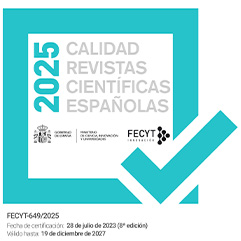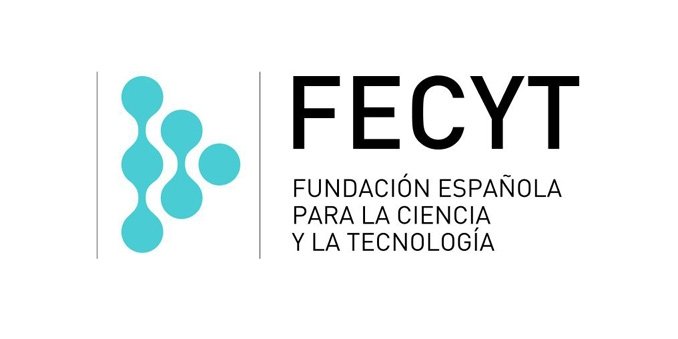Turismo regenerativo: Expectativas a priori de valor de consumo tras un primer contacto con el concepto
DOI:
https://doi.org/10.17561/ree.n2.2024.8761Palabras clave:
Turismo regenerativo, expectativas, Teoría de valores de consumo, consumidor Millennial, Agenda 2030Resumen
Los turistas frecuentemente crean expectativas de cómo sería experimentar una determinada oferta turística mucho antes de disfrutar de ella, y son estas expectativas lo que, en gran medida, influye en la decisión de consumo, así como su subsecuente experiencia y valoración. Por tanto, el propósito del presente estudio es indagar sobre las expectativas de valor de consumo específicas a las experiencias de turismo regenerativo, generadas tras un primer acercamiento con el concepto. La presente investigación adopta una metodología cualitativa con fines exploratorios. La recolección de datos es llevada a cabo mediante la técnica de entrevista semiestructurada, con una población de interés compuesta por individuos de origen mexicano, autodeclarados como entusiastas del turismo, pertenecientes a la cohorte generacional conocida como millennials. Los resultados identifican nueve expectativas de valor de consumo de experiencias de turismo regenerativo para estos turistas potenciales, quienes encuentran el compensar efectos no deseados, la polivalencia percibida de estas experiencias, la gratificación emocional, el bienestar, el protagonismo, el incremento en su estatus social, la unicidad de esta modalidad de experiencias, el aprendizaje y la adherencia al estilo de vida como deseables consecuencias esperadas del consumo de este producto turístico. Estos resultados han ayudado a esclarecer la relación entre el interés por el bien común y el propio, mezcla que parece guiar el comportamiento de los consumidores millennials, prometiendo contribuir al éxito del prometedor paradigma del turismo regenerativo, el cual promueve una mentalidad de beneficio para todos los entes involucrados.
Descargas
Referencias
Andereck, K., McGehee, N. G., Lee, S., y Clemmons, D. (2012). Experience Expectations of Prospective Volunteer Tourists. Journal of Travel Research, 51(2), 130–141. https://doi.org/10.1177/0047287511400610
Ateljevic, I. (2020). Transforming the (tourism) world for good and (re)generating the potential ‘new normal’. Tourism Geographies, 22(3), 467–475. https://doi.org/10.1080/14616688.2020.175913
Athey, A. (2023). The Snowflakes' Revolt: How Woke Millennials Hijacked American Media. Bombardier Books.
Babbie, E. R. (2020). The practice of social research. Cengage learning.
Baumeister, R. F., y Hutton, D. G. (1987). Self-presentation theory: Self-construction and audience pleasing. In Theories of group behavior (pp. 71–87). New York, NY: Springer New York
Bellato, L., Frantzeskaki, N., Fiebig, C. B., Pollock, A., Dens, E., y Reed, B. (2022b). Transformative roles in tourism: Adopting living systems’ thinking for regenerative futures. Journal of Tourism Futures, 8(3), 312–329. https://doi.org/10.1108/JTF-11-2021-0256
Bellato, L., Frantzeskaki, N., y Nygaard, C. A. (2022). Regenerative tourism: A conceptual framework leveraging theory and practice. Tourism Geographies, 25(4), 1026–1046. https://doi.org/10.1080/14616688.2022.2044376
Bellato, L., y Pollock, A. (2023). Regenerative tourism: A state-of-the-art review. Tourism Geographies, 1–10. https://doi.org/10.1080/14616688.2023.2294366
Berman, B. (2020). Paths to purchase: the seven steps of customer purchase journey mapping. Rutgers Business Review, 5(1), 84–100. https://ssrn.com/abstract=3660155
Brosch, T. (2021). Affect and emotions as drivers of climate change perception and action: A review. Current Opinion in Behavioral Sciences, 42, 15–21. https://doi.org/10.1016/j.cobeha.2021.02.001
Bucic, T., Harris, J., y Arli, D. (2012). Ethical consumers among the Millennials: A cross-national study. Journal of business ethics, 110(1), 113–131. https://doi.org/10.1007/s10551-011-1151-z
Carter, N., Bryant-Lukosius, D., Dicenso, A., Blythe, J., Neville, A.J., (2014). The use of triangulation in qualitative research. Oncology Nursing Forum 41, 545–547. https://doi.org/10.1188/14.ONF.545-547
Cavagnaro, E., Staffieri, S., y Postma, A. (2018). Understanding Millennials’ tourism experience: values and meaning to travel as a key for identifying target clusters for youth (sustainable) tourism. Journal of Tourism Futures, 4(1), 31–42. https://doi.org/10.1108/JTF-12-2017-0058
Chylińska, D. (2022). Escape? But where? About ‘escape tourism’. Tourist Studies, 22(3), 262–289. https://doi.org/10.1177/14687976221092220
Corral-Gonzalez, L., Cavazos Arroyo, J., y Josefa, G. M. (2023). Regenerative tourism: A bibliometric analysis. Journal of Tourism, Heritage y Services Marketing, 9(2), 41–54. https://doi.org/10.5281/zenodo.10539722
Crompton, J. (1979) Motivations for pleasure vacation. Annals of Tourism Research 6 (4), 408–424. https://doi.org/10.1016/0160-7383(79)90004-5
Dimock, M. (2018, January 17). Defining generations: Where Millennials end and post-Millennials begin. Pew Research Center. https://www.pewresearch.org/short-reads/2019/01/17/where-Millennials-end-and-generation-z-begins/
Dredge, D. (2022). Regenerative tourism: Transforming mindsets, systems and practices. Journal of Tourism Futures, 8(3), 269–281. https://doi.org/10.1108/JTF-01-2022-0015
Edwards, W. (1954). The theory of decision making. Psychological Bulletin, 51(4), 380–417. https://doi.org/10.1037/h0053870
Feather, N. T. (2021). Expectations and actions: Expectancy-value models in psychology. Routledge.
Finca Luna Nueva. (2024). Who are we. https://fincalunanuevalodge.com/, https://fincalunanuevalodge.com/
Hennink, M. M., Kaiser, B. N., y Marconi, V. C. (2017). Code saturation versus meaning saturation: how many interviews are enough? Qualitative health research, 27(4), 591–608. https://doi.org/10.1177/1049732316665344
Hooper‐Greenhill, E. (2006). Studying visitors. En S. Macdonald (Ed.). A companion to museum studies (pp. 362–376). https://doi.org/10.1002/9780470996836.ch11
Kallio, H., Pietilä, A. M., Johnson, M., y Kangasniemi, M. (2016). Systematic methodological review: developing a framework for a qualitative semi‐structured interview guide. Journal of advanced nursing, 72(12), 2954–2965. https://doi.org/10.1111/jan.13031
Kaur, P., Dhir, A., Talwar, S., y Ghuman, K. (2021). The value proposition of food delivery apps from the perspective of theory of consumption value. International Journal of Contemporary Hospitality Management, 33(4), 1129–1159.
Ketter, E. (2020). Millennial travel: tourism micro-trends of European Generation Y. Journal of Tourism Futures, 7(2), 192–196. https://doi.org/10.1108/JTF-10-2019-0106
Koczanski, P., y Rosen, H. S. (2019). Are Millennials really particularly selfish? Preliminary evidence from a cross-sectional sample in the philanthropy panel study. American Behavioral Scientist, 63(14), 1965–1982. https://doi.org/10.1177/0002764219850871
Kotler, P. (2020). Marketing and value creation. Journal of Creating Value, 6(1), 10–11. https://doi.org/10.1177/2394964320903559
Kotler, P., y Armstrong, G. (2021). Principles of marketing (Global 18th ed.). Pearson.
Lepere, I. (2023, Jul 10). Three sisters and 120 sweet potatoes: Mexican farmers embrace Maya traditions. The Guardian: The Age of Extintiion. https://amp.theguardian.com/environment/2023/jul/10/three-sisters-and-120-sweet-potatoes-mexico-farmers-embrace-maya-traditions-aoe
Lerner, J. S., Li, Y., Valdesolo, P., y Kassam, K. S. (2015). Emotion and decision making. Annual review of psychology, 66, 799–823, https://doi.org/10.1146/annurev-psych-010213-115043
Luna-Cortés, G., López-Bonilla, J. M., y López-Bonilla, L. M. (2019). Self-congruity, social value, and the use of virtual social networks by generation y travelers. Journal of Travel Research, 58(3), 398–410. https://doi.org/10.1177/0047287518755502
Maiers M. (2017). Our future in the hands of Millennials. The Journal of the Canadian Chiropractic Association, 61(3), 212–217. https://www.ncbi.nlm.nih.gov/pmc/articles/PMC5799841/
Malone, S., McCabe, S., y Smith, A. P. (2014). The role of hedonism in ethical tourism. Annals of Tourism Research, 44, 241–254. https://doi.org/10.1016/j.annals.2013.10.005
Mason, M. C., Oduro, S., Umar, R. M., y Zamparo, G. (2023). Effect of consumption values on consumer behavior: A Meta-analysis. Marketing Intelligence y Planning, 41(7), 923–944. https://doi.org/10.1108/MIP-03-2023-0100
Naderi, I., y Van Steenburg, E. (2018). Me first, then the environment: Young Millennials as green consumers. Young Consumers, 19(3), 280–295. https://doi.org/10.1108/YC-08-2017-00722
Narangajavana, Y., Fiol, L. J. C., Tena, M. Á. M., Artola, R. M. R., y García, J. S. (2017). The influence of social media in creating expectations. An empirical study for a tourist destination. Annals of tourism research, 65, 60–70. https://doi.org/10.1016/j.annals.2017.05.002
Pesch, R., y Bouncken, R. B. (2018). How to achieve benefits from diversity in international alliances: Mechanisms and cultural intelligence. Global Strategy Journal, 8(2), 275–300. https://doi.org/10.1002/gsj.1167
Pine, B., y Gilmore, J. H. (1998). Welcome to the experience economy. Harvard Business Review, 97–105.
Rita, P., Brochado, A., y Dimova, L. (2019). Millennials’ travel motivations and desired activities within destinations: A comparative study of the US and the UK. Current Issues in Tourism, 22(16), 2034–2050. https://doi.org/10.1080/13683500.2018.1439902
Ritchie, J., y Hudson, S. (2009). Understanding and meeting the challenges of consumer/tourist experience research. International Journal of Tourism Research, 11(2), 111–126. https://doi.org/10.1002/jtr.721
Rodríguez Del Bosque, I., San Martin, H., Collado, J., y del Mar García de los Salmones, M. (2009). A framework for tourist expectations. International Journal of Culture, Tourism and Hospitality Research, 3(2), 139–147. https://doi.org/10.1108/17506180910962140
Rose, N. J., y Sherman, J. W. (2007). Expectancy. En A. W. Kruglanski y E. Tory Higgins (Eds.), Social Psychology: A Handbook of Basic Principles (2nd ed., pp. 91–115). Guilford Press.
Schwartz, S. H. (2012). An Overview of the Schwartz Theory of Basic Values. Online Readings in Psychology and Culture, 2(1). https://doi.org/10.9707/2307-0919.1116
Sheth, J. N., Newman, B. I., y Gross, B. L. (1991). Why we buy what we buy: A theory of consumption values. Journal of business research, 22(2), 159–170. https://doi.org/10.1016/0148-2963(91)90050-8
Skeldon, G. y Casey Waller, R. (2018). The passion generation: The seemingly reckless, definitely disruptive, but far from hopeless Millennials. Zondervan
Stein, J. (2013). Millennials: The me me me generation. Time magazine, 20, 1–8.
Talwar, S., Dhir, A., Kaur, P., y Mäntymäki, M. (2020). Why do people purchase from online travel agencies (OTAs)? A consumption values perspective. International Journal of Hospitality Management, 88, 102534. https://doi.org/10.1016/j.ijhm.2020.102534
Tanrikulu, C. (2021). Theory of consumption values in consumer behaviour research: A review and future research agenda. International Journal of Consumer Studies, 45(6), 1176–1197. https://doi.org/10.1111/ijcs.12687
Teti, M., Schatz, E., y Liebenberg, L. (2020). Methods in the time of COVID-19: the vital role of qualitative inquiries. International Journal of Qualitative Methods, 19. https://doi.org/10.1177/1609406920920962
Tiwari, V., y Mishra, A. (2023). The effect of a hotel's star-rating-based expectations of safety from the pandemic on during-stay experiences. Journal of Retailing and Consumer Services, 71, 103223. https://doi.org/10.1016/j.jretconser.2022.103223
Wang, K. T., y Goh, M. (2020). Cultural intelligence. En B.J. Carducci, C.S. Nave, J.S. Mio y R.E. Riggio (Eds.), The Wiley Encyclopedia of Personality and Individual Differences: Clinical, Applied, and Cross‐Cultural Research, (pp. 269–273). John Wiley y Sons Ltd. https://doi.org/10.1002/9781118970843.ch310
Zhang, L., Wei, W., Yu, H., Sharma, A., y Olson, E. D. (2023). Transformation of Consumer Expectations for Well-Being in Hospitality: A Systems Framework. Journal of Hospitality y Tourism Research, 47(4), NP4–NP17. https://doi.org/10.1177/10963480221141601
Publicado
Número
Sección
Licencia
Derechos de autor 2024 Lariza Corral-Gonzalez, Judith Cavazos-Arroyo, Josefa García-Mestanza

Esta obra está bajo una licencia internacional Creative Commons Atribución 4.0.
- Los autores/as conservarán sus derechos de autor y garantizarán a la revista el derecho de primera publicación de su obra, el cuál estará simultáneamente sujeto a la Licencia de reconocimiento de Creative Commons que permite a terceros compartir la obra siempre que se indique su autor y su primera publicación esta revista.
- Los autores/as podrán adoptar otros acuerdos de licencia no exclusiva de distribución de la versión de la obra publicada (p. ej.: depositarla en un archivo telemático institucional o publicarla en un volumen monográfico) siempre que se indique la publicación inicial en esta revista.
- Se permite y recomienda a los autores/as difundir su obra a través de Internet (p. ej.: en archivos telemáticos institucionales o en su página web) antes y durante el proceso de envío, lo cual puede producir intercambios interesantes y aumentar las citas de la obra publicada. (Véase El efecto del acceso abierto).
La Revista de Estudios Empresariales. Segunda Época, utiliza PKP Preservation Network (PN).




























